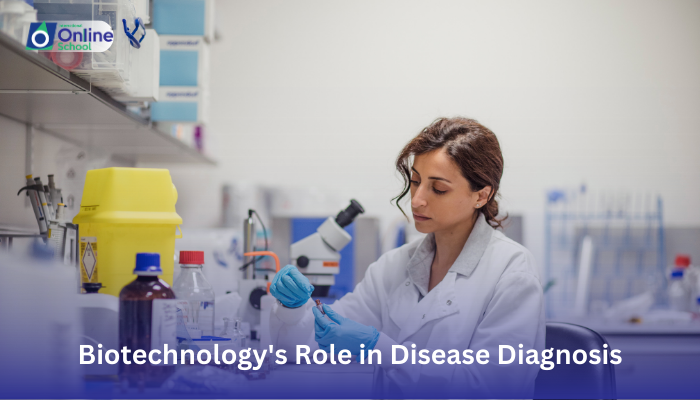
Learning Outcomes:
i. State the role of biotechnology in diagnosing diseases, highlighting the use of DNA/RNA probes and monoclonal antibodies.
ii. Describe the working principles of these techniques and explain how they contribute to precise and efficient diagnosis.
iii. Appreciate the impact of biotechnological diagnostic tools on improving healthcare outcomes and disease management.
Introduction:
Imagine a world where the mysteries of illness are unraveled quickly and effectively, diagnoses no longer shrouded in uncertainty. This isn't science fiction, but the reality of biotechnological diagnostic tools, revolutionary technologies that shine a light on the hidden causes of disease. Today, we embark on a thrilling detective story, exploring how scientists leverage the power of biology to crack the code of illness and deliver swift, accurate diagnoses.
i. The Molecular Detectives: DNA/RNA Probes and their Pursuit:
DNA/RNA probes: These tiny molecules are designed to bind to specific sequences of DNA or RNA, unique to a particular pathogen or disease. Think of them as microscopic detectives, searching for fingerprints within the genetic material.
PCR (Polymerase Chain Reaction): This technique amplifies the target DNA/RNA sequence, making it easier for the probes to detect, even in minute amounts. Imagine a magnifying glass for genetic clues, allowing scientists to see the hidden signatures of disease.
ii. The Case of the Precise Antibodies: Monoclonal Antibodies on the Trail:
Monoclonal antibodies: These are lab-made molecules that can specifically recognize and bind to unique proteins on the surface of pathogens or diseased cells. Consider them as specialized trackers, trained to identify and lock onto the culprits behind the illness.
ELISA (Enzyme-linked Immunosorbent Assay): This technique uses monoclonal antibodies to detect the presence of specific proteins, indicating the presence of a particular disease or infection. Think of it as a chemical fingerprint analysis, confirming the identity of the hidden suspect.
iii. Unmasking the Benefits: Advantages of Biotechnological Diagnostic Tools:
Early detection and intervention: Precise and rapid diagnosis allows for earlier treatment, improving disease outcomes and reducing the spread of infections.
Personalized medicine: Tailoring treatments based on the specific genetic or molecular signature of the disease can lead to more effective therapies.
Improved disease surveillance and control: Early identification of outbreaks and tracking of pathogens help in containing epidemics and preventing further transmission.
iv. The Future of Diagnosis: A Continuous Quest for Precision:
Advancements in gene sequencing and bioinformatics: These technologies hold promise for even more detailed understanding of disease mechanisms and personalized diagnostics.
Development of point-of-care devices: Rapid and portable diagnostic tools will enable faster and easier diagnosis in remote or resource-limited settings.
Addressing ethical considerations and ensuring accessibility: Ensuring equitable access to these powerful tools and addressing ethical concerns surrounding genetic information are crucial aspects of responsible development.
Biotechnological diagnostic tools are transforming healthcare, providing swift and accurate answers to the mysteries of illness. By employing DNA/RNA probes, monoclonal antibodies, and other innovative techniques, these tools empower healthcare professionals to diagnose diseases early, personalize treatments, and ultimately improve health outcomes for individuals and communities. As research continues and technology advances, the future of diagnosis promises to be even more precise and efficient, leading to a healthier and more secure future for all.